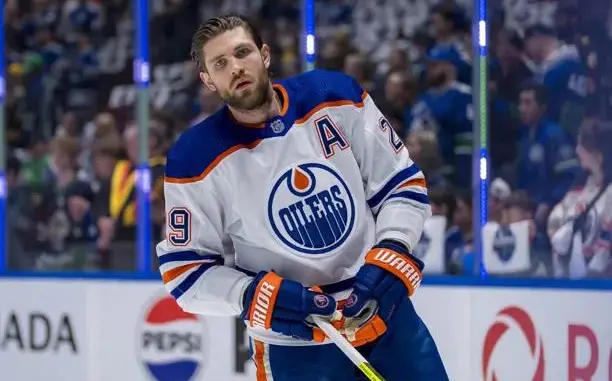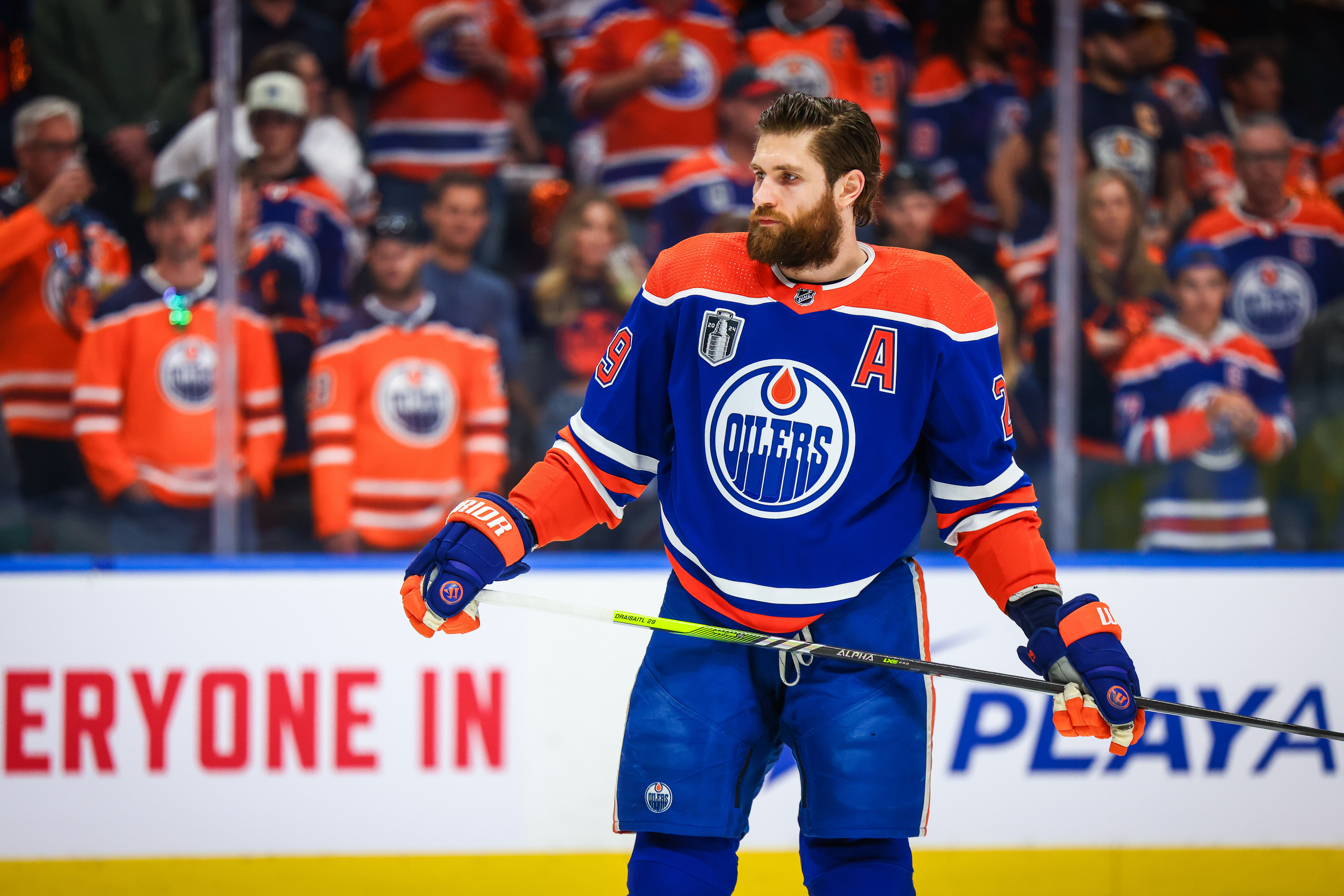

As the NHL offseason continues to unfold, a new buzz is sweeping through the hockey world, ignited by reports that Edmonton Oilers superstar Leon Draisaitl may be on the verge of signing a blockbuster contract extension that could eclipse the recent deal inked by Toronto Maple Leafs’ franchise player, Auston Matthews. The potential contract has sparked intense reactions from fans, analysts, and insiders alike, as the implications of such a deal could reshape the landscape of the league and redefine the standard for elite player compensation.
### The Context: Matthews’ Historic Deal
Just weeks ago, Auston Matthews made headlines when he signed a four-year contract extension with the Toronto Maple Leafs, worth $53 million and carrying an average annual value (AAV) of $13.25 million. This deal made Matthews the highest-paid player in the NHL in terms of AAV, surpassing the likes of Nathan MacKinnon and Connor McDavid. For many, the contract was a reflection of Matthews’ status as one of the league’s premier goal scorers and a cornerstone of the Maple Leafs’ future.
Matthews’ extension was widely celebrated by Leafs fans, who viewed it as a commitment to keeping one of the league’s most dynamic talents in Toronto for the foreseeable future. However, the news of Leon Draisaitl’s potential contract has quickly shifted the focus, as speculation mounts over whether the Oilers’ star could soon claim the title of the NHL’s highest-paid player.
### Draisaitl’s Ascendancy: A Worthy Rival?
Leon Draisaitl has firmly established himself as one of the NHL’s most dominant players. Since winning the Hart Trophy as the league’s MVP in 2020, the German forward has continued to excel, consistently ranking among the top scorers in the league and playing a pivotal role in the Oilers’ resurgence as a playoff contender. His chemistry with Connor McDavid, another generational talent, has made the Oilers one of the most feared offensive teams in the league.
With Draisaitl’s current contract set to expire in 2025, discussions about his future have naturally intensified. The reports of a potential contract extension that could eclipse Matthews’ deal have sent shockwaves through the NHL community. If the numbers being speculated—an AAV of upwards of $14 million—prove accurate, it would represent a seismic shift in the financial hierarchy of the league.
### Fan Reactions: A Divisive Debate
Unsurprisingly, the news has ignited a fierce debate among NHL fans. On social media platforms like Twitter and Reddit, discussions have ranged from excitement to skepticism, with fans from different teams weighing in on the implications of Draisaitl potentially surpassing Matthews as the league’s highest-paid player.
Many Oilers fans have expressed enthusiasm over the prospect of securing Draisaitl for the long term, viewing it as a necessary move to keep pace in an increasingly competitive Western Conference. For them, Draisaitl’s contributions on both ends of the ice, his leadership qualities, and his ability to elevate the play of those around him make him worth every penny of a potential record-breaking deal.
“Draisaitl is a game-changer. He’s been an MVP, and he’s only getting better. If the Oilers want to win a Cup, they need to lock him up,” wrote one fan on Reddit, capturing the sentiment of many in Edmonton.
On the other hand, some fans and analysts have raised concerns about the potential financial strain such a contract could place on the Oilers’ salary cap. With McDavid already carrying a hefty $12.5 million AAV, adding another mega-deal for Draisaitl could limit the team’s flexibility to build a balanced roster around its two stars.
“Sure, Draisaitl is amazing, but how do you build a contender when two players are taking up such a huge chunk of the cap? It’s a risky move,” tweeted a hockey analyst, echoing a common concern among cap-conscious fans.
For Maple Leafs supporters, the possibility of Matthews being overshadowed by Draisaitl’s contract has been met with mixed reactions. Some fans have downplayed the significance of the potential deal, arguing that Matthews’ value to the Leafs goes beyond his salary and that his contract was structured to maximize the team’s chances of competing for a Stanley Cup in the near term.
“Matthews is focused on winning. He took a shorter deal to keep the team competitive. Let Draisaitl have the money—Matthews has his eyes on the prize,” commented a Leafs fan on a popular forum.
Others, however, have expressed frustration at the idea that Matthews’ status as the league’s highest-paid player could be so short-lived, viewing it as a potential slight against their star player.
“This feels like a slap in the face to Matthews. He’s done so much for this franchise, and now he’s going to be overshadowed? It’s frustrating,” tweeted a passionate Leafs fan.
### The Broader Implications: A New Standard for Superstar Contracts?
Beyond the immediate fan reactions, the potential Draisaitl contract raises broader questions about the future of superstar contracts in the NHL. As the league’s revenues continue to grow and the salary cap gradually increases, the market for elite talent is likely to see further inflation. The contracts of players like Draisaitl, Matthews, and McDavid could set new benchmarks, forcing other teams to re-evaluate how they approach negotiations with their own star players.
For teams with emerging superstars, the ripple effects of a Draisaitl deal could be significant. General managers may feel pressured to offer more lucrative deals to retain top talent, potentially leading to a new era of mega-contracts that redefine the financial landscape of the NHL.
### Conclusion: A Potential Turning Point in NHL Contract Negotiations
As the NHL community awaits further developments on Leon Draisaitl’s potential contract extension, the speculation and reactions serve as a reminder of the ever-evolving dynamics of the league. Whether or not Draisaitl’s deal ultimately surpasses Auston Matthews’ contract, the discussions surrounding it highlight the complex interplay between player value, team success, and financial strategy in today’s NHL.
For fans, analysts, and players alike, this moment represents a potential turning point—one that could reshape how the league’s top stars are compensated and how teams navigate the challenges of building championship-caliber rosters in a salary cap-driven environment. As the debate continues, one thing is certain: the NHL’s contract landscape may never be the same again.
Leave a Reply